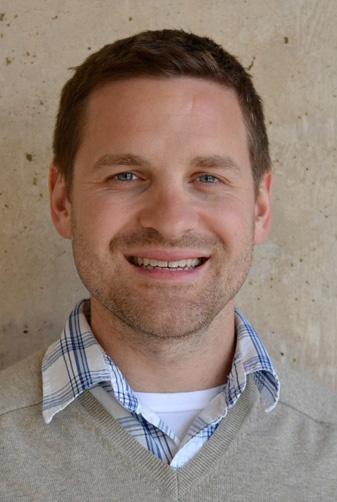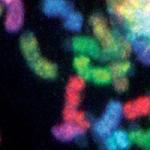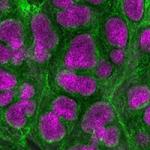
Todd Scott Macfarlan, Ph.D.
Senior Investigator
Section on Mammalian Development & Evolution
NICHD/DIR
Research Topics
At NICHD, our central mission is to ensure that every human is born healthy. Despite much progress in understanding the many ways the mother interacts with the fetus during development, we still know little about the molecular changes that promoted the emergence of placental mammals over 100 million years ago from our egg-laying relatives, nor those mechanisms that continue drive phenotypic differences amongst mammals. One attractive hypothesis is that retroviruses and their endogenization into the genomes of our ancestors played an important role in eutherian evolution, by providing protein coding genes like syncytins (derived from retroviral envgenes that cause cell fusions in placental trophoblasts) and novel gene regulatory nodes that altered expression networks to allow for implantation and the emergence and continued evolution of the placenta. The primary interest of my lab is to explore the impact of these endogenous retroviruses (ERVs), that account for ~10% of our genomic DNA, on embryonic development and on the evolution of new traits in mammals. This has led us to examine the rapidly evolving Kruppel-associated box zinc finger protein (KZFP) family, the single largest family of transcription factors (TFs) in most, if not all mammalian genomes. Our hypothesis is that KZFP gene expansion and diversification has been driven primarily by the constant onslaught of ERVs and other transposable elements (TEs) to the genomes of our ancestors, as a means to transcriptionally repress them. This hypothesis is supported by recent evidence demonstrating the majority of KZFPs bind TEs and that TEs and nearby genes are activated in KZFP knockout mice. In the next several years we will continue to explore the impacts of the TE/KZFP “arms race” on the evolution of mammals. We will also begin a new phase exploring whether KZFPs play broader roles in genome regulation beyond gene silencing, and how these functions impact mammalian development.
Biography
Dr. Todd Macfarlan earned his Ph.D. in Cell and Molecular Biology from the University of Pennsylvania in 2000, where his interest in epigenetic phenomena began while studying the histone binding and transcriptional repressive activities of THAP domain proteins. After his Ph.D., Dr. Macfarlan joined the laboratory of Dr. Samuel Pfaff at the Salk Institute for Biological Studies, where he continued to study chromatin and epigenome changes during mammalian embryo development. He was then recruited to the NIH in July of 2012 as part of the Earl Stadtman Investigator search, in chromosome biology and epigenetics. As a member of the Program in Genomics of Differentiation, NICHD, Dr. Macfarlan heads the Unit on Mammalian Epigenome Reprogramming.
Selected Publications
- Wolf G, de Iaco A, Sun MA, Bruno M, Tinkham M, Hoang D, Mitra A, Ralls S, Trono D, Macfarlan TS. KRAB-zinc finger protein gene expansion in response to active retrotransposons in the murine lineage. Elife. 2020;9.
- Mahgoub M, Paiano J, Bruno M, Wu W, Pathuri S, Zhang X, Ralls S, Cheng X, Nussenzweig A, Macfarlan TS. Dual histone methyl reader ZCWPW1 facilitates repair of meiotic double strand breaks in male mice. Elife. 2020;9.
- Patel A, Yang P, Tinkham M, Pradhan M, Sun MA, Wang Y, Hoang D, Wolf G, Horton JR, Zhang X, Macfarlan T, Cheng X. DNA Conformation Induces Adaptable Binding by Tandem Zinc Finger Proteins. Cell. 2018;173(1):221-233.e12.
- Yang P, Wang Y, Hoang D, Tinkham M, Patel A, Sun MA, Wolf G, Baker M, Chien HC, Lai KN, Cheng X, Shen CJ, Macfarlan TS. A placental growth factor is silenced in mouse embryos by the zinc finger protein ZFP568. Science. 2017;356(6339):757-759.
- Wolf G, Rebollo R, Karimi MM, Ewing AD, Kamada R, Wu W, Wu B, Bachu M, Ozato K, Faulkner GJ, Mager DL, Lorincz MC, Macfarlan TS. On the role of H3.3 in retroviral silencing. Nature. 2017;548(7665):E1-E3.
Related Scientific Focus Areas




Molecular Biology and Biochemistry
View additional Principal Investigators in Molecular Biology and Biochemistry

This page was last updated on Friday, January 16, 2026